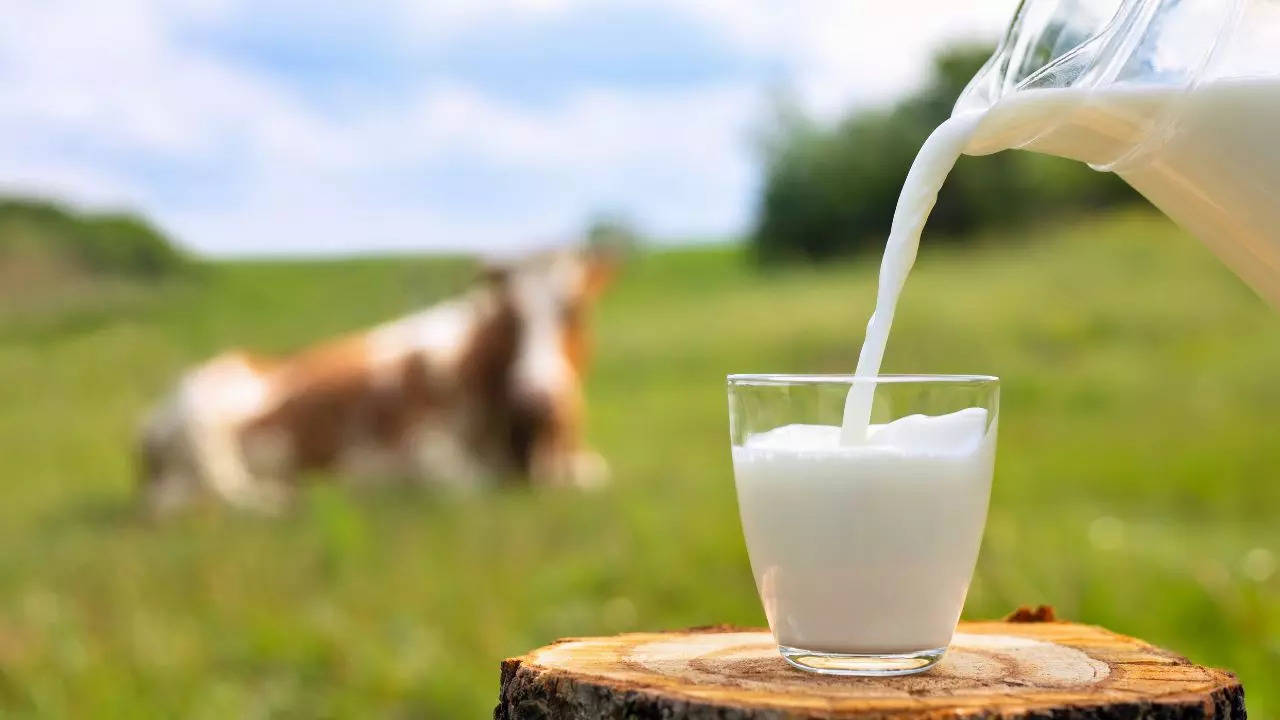

FDA Urges States to Limit Sales Of Raw Milk To Prevent Bird Flu
The Food and Drugs Administration (FDA) in an open letter has urged states to regulate the sale of raw milk within the states or in areas where dairy cows have tested positive for the H5N1 bird flu virus. Several states in the United States have reported bird flu infection in dairy cows. The World Health Organisation (WHO) confirmed the first death of a human due to the avian influenza A(H5N2) virus on Wednesday.
This was the first laboratory-confirmed human case of infection with avian influenza A(H5N2) virus reported globally and the first avian H5 virus infection in a person reported in Mexico. According to the US Department of Agriculture, 82 herds in the US have tested positive for the H5N1 virus, said a report in CNN.
While the FDA doesn’t allow the sale of raw milk across state lines, several states allow the sale of raw milk for human consumption within their borders. Some of the states in the US also allow raw milk to be sold with food labelled “not for human consumption,” and that it is upto people what they do with the milk in their homes.
Dr. Don Prater, acting director of the Center for Food Safety and Applied Nutrition, who is leading the agency’s H5N1 response said, “Given the current and potential future risks that HPAI H5N1 virus poses to our nation’s public health, as well as the health of our nation’s food-producing animals and wildlife, it is important to work together to minimize the additional exposure of humans and other animal species.”
Experts say that one can drink pasteurized milk during a bird flu outbreak. However, make sure to not drink raw milk as it could be contaminated with the virus. During the process of pasteurization, the milk is heated to a very high temperature which is sufficient to kill pathogens. The process is very effective at eliminating bacteria and viruses that can cause diseases such as bird flu.
Know Why You Shouldn’t Drink Raw Milk
Raw milk can be contaminated with dangerous bacteria, such as H5N1 bird flu virus, Salmonella, E. coli and Listeria among others. These bacteria can affect the immune system and can make you ill. Raw milk can have high levels of the bird flu virus because the virus appears to infect cows through their udders.
Therefore, it is crucial that you drink only pasteurized milk as this process helps to kill the bacteria that might be present in the raw milk.
Signs and Symptoms of the H5N1 bird flu
Take a look at some of the early signs and symptoms of H5N1 bird flu.
- Fever: High temperature is often the first sign, typically above 38°C (100.4°F).
- Cough: Initially, a dry cough that can become more severe over time.
- Sore throat: Discomfort or pain in the throat area, making swallowing difficult.
- Muscle aches: Body aches and pains.
- Headache: This can range from mild to severe.
- Respiratory symptoms: Early stages may present mild respiratory issues that can rapidly progress.
- Pneumonia: This is indicated by difficulty breathing, rapid breathing, or wheezing.
- Acute Respiratory Distress Syndrome (ARDS): A severe form of respiratory failure.
- Diarrhoea: Unlike usual influenza, H5N1 can cause gastrointestinal symptoms.
- Vomiting: This can occur in conjunction with other gastrointestinal symptoms.
- Bleeding from the nose and gums: This usually happens in severe cases.
- Neurological changes: Rarely, encephalitis (brain inflammation) can happen which eventually leads to seizures or altered mental states.





